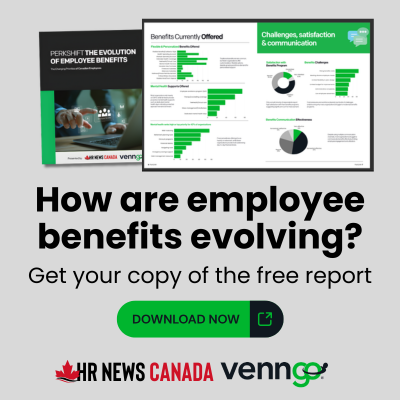A new research report warns human resources professionals against reactive responses to trending workplace terms like “quiet quitting” and “bare minimum Mondays,” arguing that buzzwords often mask deeper organizational problems.
McLean & Company, a global HR research and advisory firm, released findings Tuesday showing that while workplace buzzwords can highlight real employee concerns, they frequently oversimplify complex issues and can lead to misguided corporate responses.
The Toronto-based firm’s report, titled “Buzzwords: Helpful or Harmful?”, examines how trending terms emerge and spread, particularly through social media platforms where algorithms favour emotionally charged content.
Most HR professionals approach buzzwords with skepticism
Research from the company shows that only six per cent of HR professionals feel excited when hearing new workplace buzzwords. The majority reported feeling cautious (52 per cent) or disinterested (39 per cent), according to a LinkedIn poll conducted by McLean & Company.
“Buzzwords may sound trendy, but they often point to something deeper – real frustrations, unmet needs, or changing workforce norms,” said Grace Ewles, director of HR Research & Advisory Services at McLean & Company. “When HR teams chase the trend without examining the context, they risk missing the opportunity to understand and address the root cause.”
The report identifies several patterns in how workplace buzzwords develop and spread. Many popular phrases simply repackage existing problems – “quick quitting” mirrors job hopping behaviour, while “grumpy staying” describes employee disengagement in more emotional terms.
Social media accelerates buzzword adoption
Media and social platforms now play a major role in spreading workplace terminology beyond traditional industry circles. Terms that once circulated primarily among HR professionals now gain rapid traction on LinkedIn and TikTok, where shareable content often distorts original meanings.
The firm warns that misuse of buzzwords can damage workplace communication and lead to poor decision-making. Organizations that act on trending phrases without proper context risk launching ineffective initiatives and increasing employee skepticism.
“Buzzwords should be perceived as clues, and not conclusions,” Ewles said. “They can be a starting point for deeper conversations if HR steps into the role of translator and strategic partner, examining what’s behind the terminology and guiding the organization to respond thoughtfully.”
Framework helps HR teams evaluate new terms
To help HR leaders evaluate emerging buzzwords, McLean & Company introduced the PAUSE framework in their report:
- Pause before reacting to a new term
- Analyze the origins, media coverage, and underlying drivers
- Understand how the buzzword relates to organizational strategy and internal data
- Strategize whether to monitor, reinforce existing efforts, or take new action
- Educate key players to reduce misinterpretation
The research suggests that successful organizations treat buzzwords as starting points for examining underlying workplace issues rather than as directives for immediate action.
The report includes analysis of high-profile terms including “quiet quitting,” “the great resignation,” and “ghost jobs,” along with guidance on identifying the workplace drivers behind trending terminology.
McLean & Company provides research and advisory services to HR professionals globally, offering diagnostics, workshops, and strategic guidance for organizational development.





